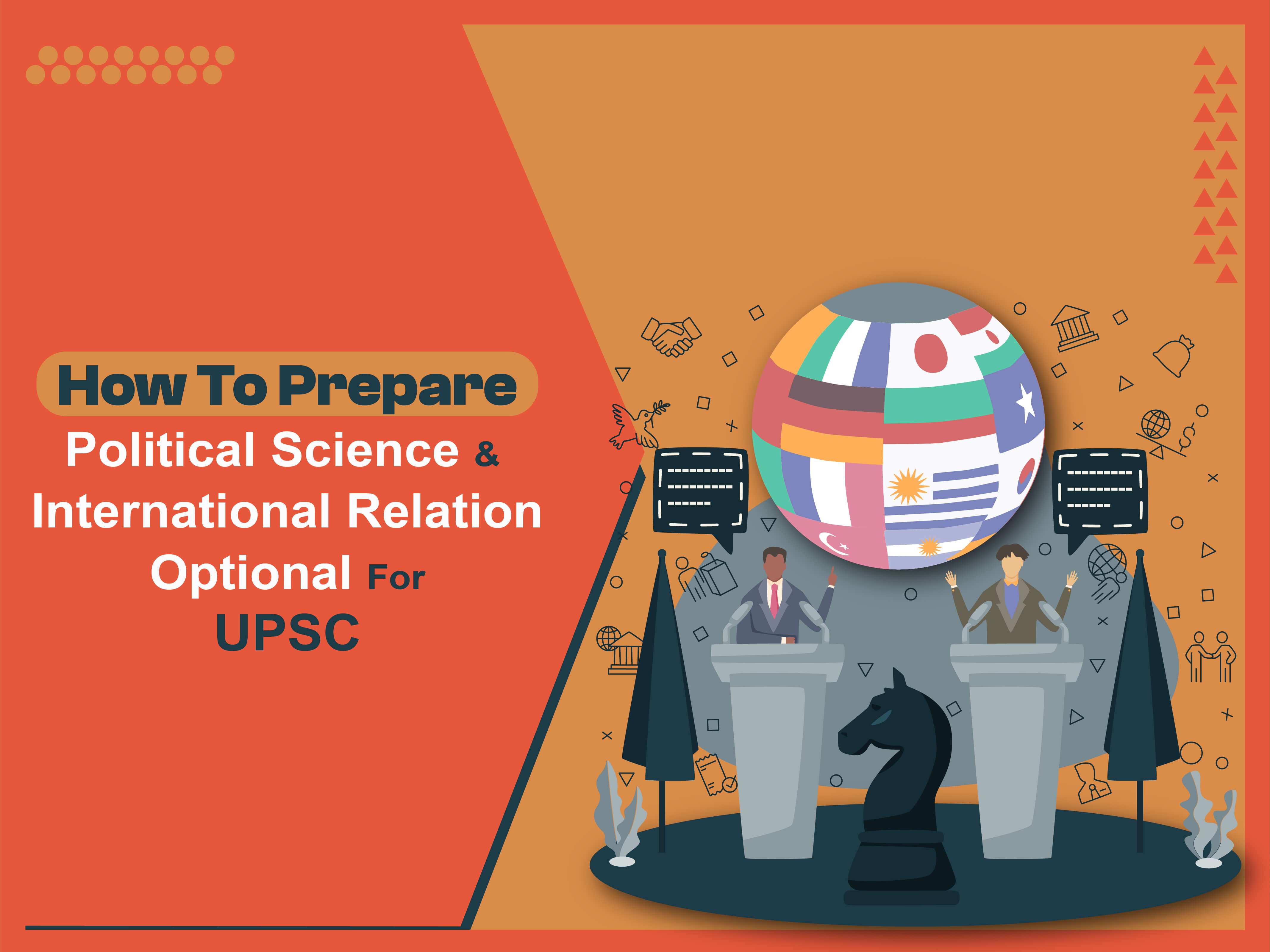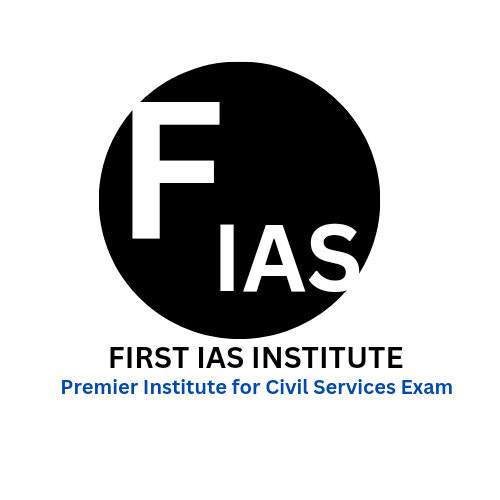
How to Prepare Political Science & International Relations Optional for UPSC
Some may feel daunted by the thought of studying Political Science & International Relations (PSIR) for a preparation course for UPSC. But don't fret! In this handbook, we will divide up the preparation process into small steps that are easily manageable. No matter whether you are a political junkie or if this topic is giving your brain trouble, we've got just the thing for you.
Understanding the Syllabus:
The first thing is to find out what you need to study. The syllabus for PSIR is a roadmap that directs your travels. It covers subjects such as political theory, Indian government and politics, comparative politics, international relations, etc. Compile this list and carry it with you as your study roadmap.
Choosing the Right Books:
On this journey, books are your companions. Select books that explain concepts clearly. O.P. Gauba's An Introduction to Political Theory is a good introduction to political theory. Bipan Chandra's India's Struggle for Independence is a useful background reading on contemporary Indian history. In the realm of international relations, M.J. Peterson's World Politics is a valuable reference book.
Creating a Study Plan:
A study plan is a schedule for your learning expedition. Space out your study time fairly for each of the different subjects. According to your lifestyle, create a schedule and then follow it. Consistency is key.

Making Notes for Revision:
When you study, take notes that are simple and clear. They are like treasure maps for revisiting. Note with bullet points, point out the important parts, and make your notes easy to read. These notes will be your rapid reference during the final revision.
Practising Answer Writing:
UPSC examination involves writing answers. Prepare by writing answers to last year's questions. This is like training for the last run. It helps you get used to saying what must be said in the time allotted.
Joining Study Groups:
You bring along your travel buddies when you study with friends or join online study groups. By talking about concepts with others, one can get a better understanding. It also adds an entertaining aspect to your preparation.
Watching Educational Videos:
The internet is a sea of knowledge. YouTube and other platforms offer visually oriented educational videos explaining concepts. These videos are like having a teacher come to your living room.
Staying Updated on Current Affairs:
What people are doing is more important than theories in political science. Follow the news regularly. In fact, it is like keeping your map up to date on political matters.
Analysing Previous Year Papers:
Last year's question papers are as if the patterns and trends of the exam had been written down on secret scrolls. Analyse them to know the types of questions they ask and prepare for that.
Balancing Theory and Current Affairs:
Balance is essential. Theory forms the foundation, and current affairs add a practical perspective. You get a total experience as if combining your study map with the most recent travel guide.
Understanding International Relations:
International Relations is like learning how countries dance on the world stage. Have a grasp of the nature of diplomacy, war, and relations between nations. Link it to today's world events.
Using Mind Maps for Visual Learning:
You can make mind maps on any topic. They are like sketches in bright colours of your study map. It helps to make complex information easy on the eyes and easier to remember.
Taking Breaks for Mental Refreshment:
Long hours of study tend to be tiring. Take short breaks. It is something like taking a break to look at the scenery during your travel. Stretch, go for a walk, or do something pleasant to clear your head.
Joining Test Series for Practice:
Enroll in the test series. Take regular practice tests as trial runs for the actual adventure. They measure your progress and help you to manage your time.
Understanding Constitution and Political System:
Indian government and politics: Grasp the basics of the Constitution and political system. It's like deciphering the laws of play in Indian politics.
Memorising Key Dates and Events:
Memorise important dates and events. It's just like learning to recognise landmarks along your journey. In your answers, they guide you through historical backgrounds.
Exploring Philosophical Thinkers:
Understanding the thoughts of great philosophers is part and parcel of political theory. Understand the thoughts of thinkers such as Plato, Aristotle, and Rousseau. It's like plumbing the philosophical depth of politics.
Utilising Online Study Materials:
Explore online study materials. Sites like Khan Academy, Unacademy, or study materials put out by coaching institutes are supplementary guidebooks on your trip.
Discussing Contemporary Issues:
Discuss modern problems. It is like talking with fellow travellers about today's political situation. Discussing ideas with others develops your understanding.
Using Flashcards for Quick Recall:
Prepare flashcards to allow for easy recall of important points. Flashcards are like magical cards that bring out what you need when you most need them.
Learning from Peer Reviews:
Exchange answers with others to get feedback. Peer reviews are like letting some fellow explorers read your travel journal. They contribute invaluable insights and perspectives.
Attending Workshops and Seminars:
If possible, participate in political science-related workshops and seminars. It's like going to conferences with political enthusiasts. These activities offer deeper understanding and new ideas.
Building Essay Writing Skills:
An important part is essay writing. Practice essay writing regularly. That's like writing your travelogue. It is a reflection of your thoughts and understanding.
Utilising Digital Resources:
Explore e-books, podcasts, and documentaries. These digital resources serve as an audioguide to your travels. They offer diverse views and add depth to your learning.
Celebrate Milestones:
It is important to celebrate your accomplishments when and as you reach them. Understanding a complicated concept or passing one of the paper tests is like checkpoints in your journey.
Creating a Positive Study Environment:
Ensure a positive study environment. It's like pitching a tent in pleasant surroundings as you travel. You are more focused and productive in a comfortable space.
Reflecting on Your Progress:
Regularly reflect on your journey. It's a bit like stopping to look at the map and admiring how far you have come. Discover places for improvement and change your route accordingly.
Building Confidence Through Mock Interviews:
As the exam date approaches, take part in mock interviews. It's just like practising your travel stories. With mock interviews, you get to build your confidence and prepare for the final stage of that long trek.
Being Open to Adaptations:
Be flexible in your approach. It's like being willing to change travel plans when circumstances dictate. In both exams and explorations, adaptability is a valuable skill.
Building a Positive Mindset:
Maintain a positive mindset. It's like having a merry travelling companion. With a good attitude, you may find overcoming obstacles and enjoying the learning process can be rewarding.
Engage in Group Discussions:
Discuss with peers or participate in online forums. It's like being in a town hall, where all kinds of points of view broaden your understanding of many subjects.
Collaborate on Case Studies:
Do some political case studies. It's like being a detective, dissecting the situation, and reading political meanings.
Follow Political Debates:
See political debates on TV or online. It's as if you attend a live discussion panel, letting you see real-time discussions and arguing.
Understand Political Movements:
Examine past and present political movements. It's a bit like learning the footsteps of social change and deciphering how group activities have shaped political topography over time.
Simulate Model United Nations (MUN):
Join in Model United Nations or other such simulations. It's as if you have donned the shoes of a diplomat, and your knowledge concerning international relations has taken one step in a practical direction.
Explore Geopolitical Maps:
See geopolitical maps in order to get an idea of international politics. It's like solving the world in a large jigsaw puzzle, connecting countries and regions; it is learning to see into their politics.
Review Research Journals:
Read articles from research journals. It's like a gateway to the hidden treasures of scholarship, offering richly detailed interpretations and thoughtful criticism.
Create Conceptual Diagrams:
Conceptual diagrams of theories and concepts. You're creating something to make your revising easier-a kind of pictorial dictionary.
Incorporate Political Cartoons:
For a lighter view, analyse political cartoons. One can say it is a kind of artistic deciphering, cutting humorous slices from political carvings.
Explore Regional Political Dynamics:
Know Indian regional political realities. It is as if you were zooming in to observe closely the different political landscapes of various states.
In Conclusion: A Successful Journey Awaits!
Preparing for the UPSC examination with Political Science and International Relations as your optional subject is indeed an adventure. By going through this procedure, you aren't just preparing for an exam. You are setting out on a mission to see and understand the actual workings of our political lives.






